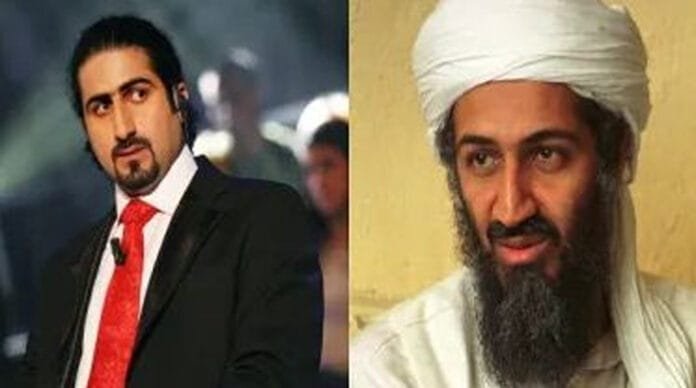INVC NEWS
Paris : The France has officially barred Omar Bin Laden, son of the infamous terrorist Osama Bin Laden, from returning to the country. This development, confirmed by French Interior Minister Bruno Retailleau, marks a significant step in France’s efforts to combat terrorism and ensure the safety of its citizens.
Background on Omar Bin Laden’s Presence in France
Omar Bin Laden, aged 43, had been residing in Normandy, France, since 2016. His presence in the country was primarily sanctioned following his marriage to British citizen Jena Mohammed Al-Sabah, also known as Jane Felix-Brown. This union facilitated his residency, allowing him to pursue a quiet life away from the tumultuous legacy of his father. In Normandy, Omar reportedly engaged in painting, seeking to carve out a peaceful existence far removed from the violent ideology associated with his father.
The Catalyst for Expulsion
The turning point for Omar’s residency came after he made controversial posts on social media, particularly commemorating his father on Osama Bin Laden’s birthday. This act was interpreted by the French government as a promotion of terrorism, which prompted swift governmental action. The Interior Minister’s statement underscored that Omar’s return to France was permanently off the table, highlighting the government’s zero-tolerance stance towards any form of terrorism or its glorification.
Legal Repercussions and the Cancellation of Residency Permit
Omar Bin Laden’s residency permit in France was suspended for two years following his social media activity. This suspension was not merely a procedural response but a clear indication of France’s stringent policies against individuals who exhibit extremist behavior or sentiments. By canceling his residency, the French government sent a message that even the slightest endorsement of terrorism would have serious consequences.
Omar’s Life Post-Expulsion
After the cancellation of his residency permit, Omar relocated to Qatar with his wife. This move marked a significant shift in his life, as he sought to escape the growing scrutiny and restrictions placed upon him in France. While living in Qatar, Omar was likely looking for a fresh start away from the shadow of his father’s notoriety. However, the implications of his actions in France continue to loom large over his future.
Reactions from the French Government and Society
The French government’s decision to bar Omar Bin Laden from returning has been met with broad approval among French citizens, many of whom feel strongly about the need for security in the wake of rising terrorist threats in Europe. Minister Retailleau’s clear articulation of the rationale behind the decision reassures the public of the government’s commitment to protecting its values and citizens from extremist ideologies.
Public Sentiment and Terrorism Concerns
In recent years, France has faced multiple terrorist attacks that have shaken the nation to its core. The public’s response to the government’s actions reflects a growing concern over any association with individuals linked to terrorism, regardless of their personal histories. The collective memory of these attacks fosters a strong desire for decisive actions against any potential threats.
International Implications of France’s Decision
France’s stance on this matter sends a powerful message to other nations grappling with similar issues. It underscores the need for international collaboration in combating terrorism and preventing the entry of individuals who may pose a risk. By taking a firm stand against the son of one of the world’s most notorious terrorists, France aligns itself with a broader global effort to ensure safety and uphold democratic values.
















